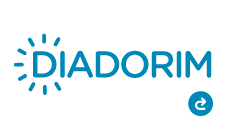Fotografia e imagem
DOI:
https://doi.org/10.35699/2238-2046..15660Keywords:
Photography, Index, Critical imageAbstract
This paper proceed to an analysis of the thought of critical image, of Didi-Huberman, starting with the concept of similarity image of Plínio, the old man, to then study the question raised by Roland Barthes about the indiciality of Photography. In contrast, it is discussed the auratic question of Photography, in Walter Benjamin, together with the definition of the aura and in which moment the reproducibility breaks with the cult value. Finally, this paper finishes with the argument of Didi-Huberman about the dialectical image whose aura image, photographic or not, is not attributed to the cult value.
References
BARTHES, Roland. A câmara clara: nota sobre a fotografia. Rio de Janeiro: Editora Nova Fronteira,1984. BENJAMIN, Walter. Mágia e Técnica, Arte e Política. São Paulo: Editora Brasil-iense, 1996. BENJAMIN, Walter. Sobre o Haxixe e Outras Drogas. Lisboa: Assírio & Alvin, 2010. DIDI-HUBERMAN, Georges. Ante el Tiempo. Buenos Aries: Editora Adriana Hidalgo, 2011. DIDI-HUBERMAN, Georges. O que vemos, o que nos olha. São Paulo:. Editora 34, 2010. DUBOIS, Philippe. O ato fotográfico e outros ensaios. Campinas: Editora Papirus, 2009. ROUILLÉ, André. A fotografia: entre documento e arte contemporânea. São Paulo: Editora Senac São Paulo, 2009.
Downloads
Published
Issue
Section
License
Copyright (c) 2014 Juliana Bragança

This work is licensed under a Creative Commons Attribution-NonCommercial 4.0 International License.
Authors who publish in this journal agree to the following terms:
- Authors retain copyright and grant the journal the right of first publication, with the work simultaneously licensed under the a Creative Commons Attribution-NonCommercial 4.0 International License that permits sharing of the work with acknowledgement of authorship and initial publication in this journal;
- Authors are permitted to enter into additional contracts separately, for non-exclusive distribution of the version of the work published in this journal (e.g., the Creative Commons Attribution License).
- Authors are permitted and encouraged to publish and distribute their work online (e.g., in institutional repositories or on their home page) at any point before or during the editorial process, as this may generate productive changes as well as increase the impact and citation of the published work.
- It is the responsibility of the authors to obtain written permission to use in their articles materials protected by copyright law. Revista PÓS is not responsible for copyright breaches made by its contributors.












